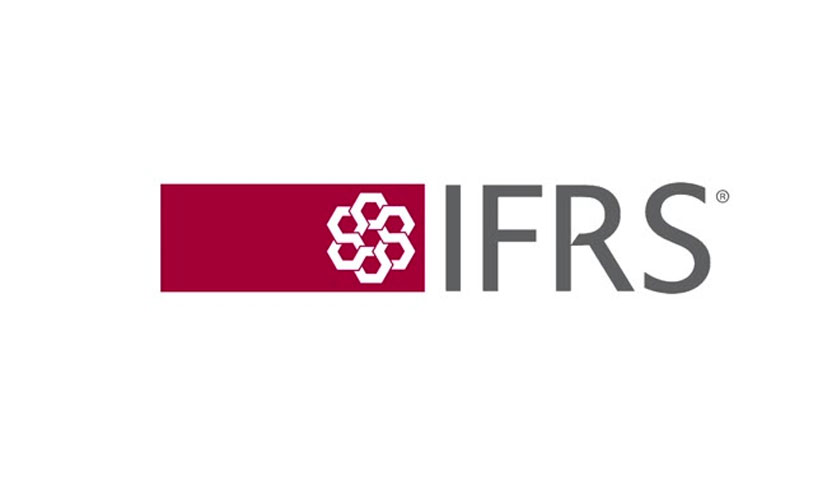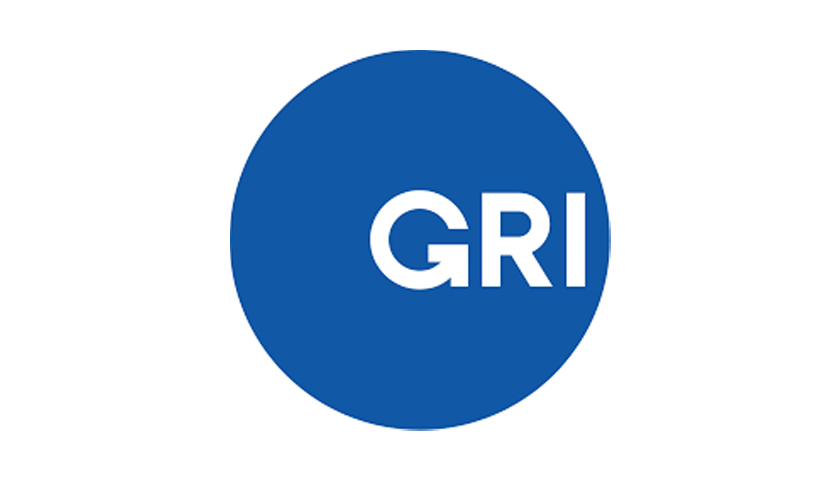As world leaders met in Glasgow for COP26, the UN global summit to address the critical and urgent issue of climate change, the IFRS Foundation Trustees (Trustees) announce three significant developments to provide the global financial markets with high-quality disclosures on climate and other sustainability issues:
- The formation of a new International Sustainability Standards Board (ISSB) to develop—in the public interest—a comprehensive global baseline of high-quality sustainability disclosure standards to meet investors’ information needs;
- A commitment by leading investor-focused sustainability disclosure organisations to consolidate into the new board. The IFRS Foundation will complete consolidation of the Climate Disclosure Standards Board (CDSB—an initiative of CDP) and the Value Reporting Foundation (VRF—which houses the Integrated Reporting Framework and the SASB Standards) by June 2022;
- The publication of prototype climate and general disclosure requirements developed by the Technical Readiness Working Group (TRWG), a group formed by the IFRS Foundation Trustees to undertake preparatory work for the ISSB. These prototypes are the result of six months of joint work by representatives of the CDSB, the International Accounting Standards Board (IASB), the Financial Stability Board’s Task Force on Climate-related Financial Disclosures (TCFD), the VRF and the World Economic Forum (Forum), supported by the International Organization of Securities Commissions (IOSCO) and its Technical Expert Group of securities regulators. The TRWG has consolidated key aspects of these organisations’ content into an enhanced, unified set of recommendations for consideration by the ISSB.
Together, these developments create the necessary institutional arrangements, set out in the Foundation’s revised Constitution, and lay the technical groundwork for a global sustainability disclosure standard-setter for the financial markets. They fulfil the growing and urgent demand for streamlining and formalising corporate sustainability disclosures.
The ISSB will sit alongside and work in close cooperation with the IASB, ensuring connectivity and compatibility between IFRS Accounting Standards and the ISSB’s standards—IFRS Sustainability Disclosure Standards. To ensure public interest legitimacy, both boards will be overseen by the Trustees, who are in turn accountable to a Monitoring Board of capital market authorities responsible for corporate reporting in their jurisdictions. The ISSB and the IASB will be independent, and their standards will complement each other to provide comprehensive information to investors and other providers of capital.
Proven demand
Financial markets need to assess the risks and opportunities facing individual companies which arise from environmental, social and governance (ESG) issues, as these affect enterprise value. This is driving significant demand for high-quality information. Investors and other providers of capital want global sustainability disclosure standards that meet their information needs. Voluntary reporting frameworks and guidance have prompted innovation and action, although fragmentation has also increased cost and complexity for investors, companies and regulators.
Many investors and regulators have called for the IFRS Foundation to build upon market-led initiatives and to use its experience in creating accounting standards used in more than 140 jurisdictions to bring globally comparable reporting on sustainability matters to the financial markets.
The Trustees’ decision to create the ISSB is informed by the feedback received in their two public consultations, discussions with advisory groups, frequent dialogue with the IFRS Foundation Monitoring Board and with support from IOSCO and others.
Comprehensive global baseline
The ISSB will develop IFRS Sustainability Disclosure Standards, including disclosure requirements that address companies’ impacts on sustainability matters relevant to assessing enterprise value and making investment decisions. The ISSB’s standards will enable companies to provide comprehensive sustainability information for the global financial markets. The standards will be developed to facilitate compatibility with requirements that are jurisdiction specific or aimed at a wider group of stakeholders (for example, the European Union’s planned Corporate Sustainability Reporting Directive as well as initiatives in the Americas and Asia-Oceania).
The G20 Leaders and the Financial Stability Board have both welcomed the IFRS Foundation’s work programme to develop global baseline standards for sustainability disclosures.
Consolidating and building on existing initiatives
Consistent with feedback received through consultation, the ISSB will build on the work of existing investor-focused reporting initiatives to become the global standard-setter for sustainability disclosures for the financial markets. To achieve this goal, the IFRS Foundation has reached commitments with the CDSB, whose secretariat is hosted by CDP, and the VRF to consolidate their technical expertise, content, staff and other resources with the IFRS Foundation. It is intended that the technical standards and frameworks of the CDSB and the VRF, along with those of the TCFD and the Forum Stakeholder Capitalism Metrics, will provide a basis for the technical work of the new board.
Recognising the urgency and the desire to provide the ISSB with a solid foundation on which to start its work, the Trustees created the TRWG—comprising representatives from the CDSB, TCFD, IASB, VRF and the Forum—to provide recommendations to the ISSB. The TRWG has concluded its work on two prototype documents published today—one which focuses on climate-related disclosures that build on the TCFD’s recommendations and includes industry-specific disclosures, and a second that sets out general sustainability disclosures. The ISSB will consider the prototypes as part of its initial work programme.
Informed by expert advice
The ISSB will draw upon expertise from several advisory groups. Technical advice on sustainability matters will be provided to the ISSB by a new Sustainability Consultative Committee, whose members will include the International Monetary Fund, the Organisation for Economic Co-operation and Development, the United Nations, the World Bank and additional expert members drawn from public, private and non-governmental organisations.
The remit and expertise of the IFRS Advisory Council will be extended to provide strategic sustainability-related advice and counsel to the ISSB, as well as the Trustees and the IASB. Finally, the Trustees have formed a working group to create a mechanism for formal engagement on standard-setting between the ISSB and jurisdictional representatives, including from emerging markets (similar to the Accounting Standards Advisory Forum, which fulfils this role for the IASB).
The Foundation intends to leverage the existing CDSB and VRF advisory groups, which include investors and other experts who have demonstrated long-standing support for improved sustainability disclosure. As well, the Forum’s private sector coalition will be engaged. The Foundation also intends to use the International Integrated Reporting Council to provide advice on establishing connectivity between the work of the IASB and the ISSB via the fundamental concepts and guiding principles of integrated reporting.
Global footprint
The ISSB will have a global and multi-location presence. All regions—the Americas, Asia-Oceania and EMEA (Europe, the Middle-East and Africa)—will be covered. Engagement with developing and emerging economies will be an important priority.
Offices in Frankfurt (the seat of the Board and the office of the Chair) and in Montreal will be responsible for key functions supporting the new Board and deeper co-operation with regional stakeholders. Offices in San Francisco, following the consolidation with the VRF, and London will also provide technical support and platforms for market engagement and deeper cooperation with regional stakeholders.
Based on expressions of interest received, the IFRS Foundation will engage without delay with Frankfurt and Montreal to make the necessary arrangements to enable the ISSB to commence work early in 2022. Further discussions will continue with proposals for offices from Beijing and Tokyo to finalise the new Board’s footprint in the Asia Oceania region. Timely actions are needed to respect the urgency expressed by IOSCO and other important stakeholders.
Next steps
The Trustees are at advanced stages in appointing a Chair and Vice-Chair(s) to the ISSB. The Trustees will commence shortly a search for the additional board positions, up to the full complement of 14 members.
The ISSB’s work is expected to commence as soon as the Chair and Vice-Chair(s) have been appointed and to begin with public consultations to inform the ISSB’s work plan and on proposals informed by recommendations from the TRWG. Following these consultations, the ISSB’s work will follow the IFRS Foundation’s rigorous due process, including public discussions by the ISSB of feedback received to the consultations and possible improvements to the proposals prior to their finalisation as standards. The entire process will be overseen by the Trustees’ Due Process Oversight Committee.
Erkki Liikanen, Chair of the IFRS Foundation Trustees, said:
Sustainability, and particularly climate change, is the defining issue of our time. To properly assess related opportunities and risks, investors require high-quality, transparent and globally comparable sustainability disclosures that are compatible with the financial statements. Establishing the ISSB and building on the innovation and expertise of the CDSB, the Value Reporting Foundation and others will provide the foundations to achieve this goal.
Mary Schapiro, Head of the TCFD Secretariat, said:
Development of the ISSB’s global baseline will deliver transformative change in sustainability disclosures for the financial markets. The TCFD welcomes the formation of the ISSB, which builds upon the foundation of the globally accepted TCFD framework and the work of an alliance of sustainability standard setters. The ISSB represents a major step forward in establishing consistent, comparable global reporting standards.
Richard Sexton and Robert K Steel, Co-Chairs of the Value Reporting Foundation Board, commented:
Today’s announcement is a reflection of the changed world we live in—a world in which sustainability and long-term thinking are increasingly at the heart of business and investor decision-making. This is a transformation that both the IIRC and SASB helped lead, made possible by the many thousands of stakeholders who volunteered time and offered resources to develop the Integrated Thinking Principles, Integrated Reporting Framework and SASB Standards that are today used by businesses and investors around the world. The Value Reporting Foundation Board believes the consolidation announced today will help deliver effective disclosures to drive global sustainability performance. We count on your continued collaboration as we embark on this exciting next step.
Richard Samans, Chairman of CDSB, and Paul Simpson, CEO of CDP said:
CDP pioneered environmental disclosure twenty years ago and has hosted CDSB since its formation in 2007. CDSB’s global partnership of business and environmental organisations supported by the international accounting community was formed to create a generally-accepted framework for corporate reporting of material climate, environmental and social information to investors and regulators.
We are delighted that the IFRS Foundation is forming the ISSB to drive forward the development of global standards for sustainability-related financial disclosures. The ISSB’s integration of CDSB will ensure that the new board has a strong foundation and can move rapidly building on existing best practice. CDP looks forward to supporting the ISSB process with its global market led environmental disclosure mechanism and expertise on data.
Klaus Schwab, Founder and Executive Chairman of the World Economic Forum, said:
Creating long-term value requires both a focus on financial and sustainability performance. This means we need tools for measuring sustainability performance just as we have for financial performance. The World Economic Forum and its private sector coalition made a contribution on this front, proposing a core set of ‘Stakeholder Capitalism Metrics’. We are pleased that this effort will provide a basis for the technical work of the ISSB. We look forward to continuing our partnership with the IFRS Foundation in support of the ISSB, during its establishment and as it delivers on its historical mandate.

